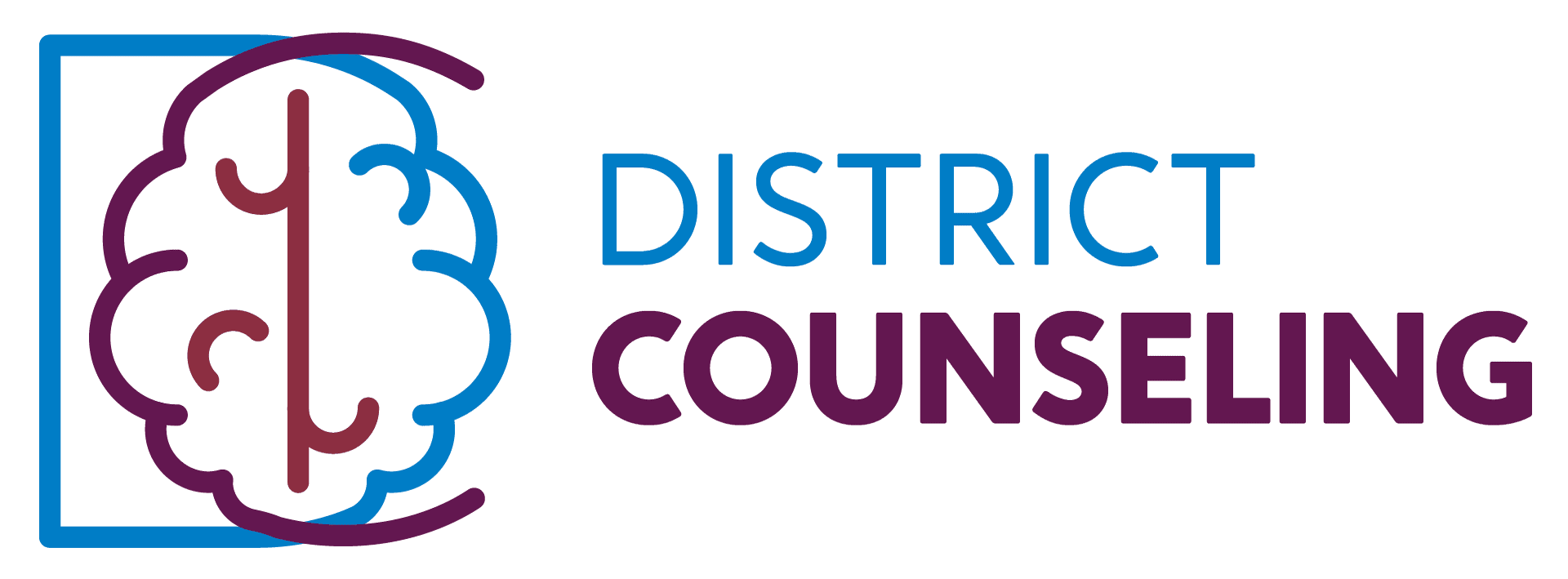Navigating the U.S. immigration system can be a complex and stressful journey. The process often involves detailed paperwork, long waiting periods, and a high level of uncertainty. In many cases, the success of an application can depend on your ability to demonstrate specific circumstances to immigration officials. A professional psychological evaluation can provide the critical evidence needed to support your case and tell your story with clarity and credibility.
This guide will explain why a psychological evaluation for immigration is so important. We will cover the types of cases that benefit from an evaluation, what the process involves, and how our experienced clinicians at District Counseling can help strengthen your application.
What is a Psychological Evaluation for Immigration?
A psychological evaluation for immigration is a comprehensive assessment conducted by a licensed mental health professional. Its purpose is to document the mental and emotional impact of your immigration journey. This is not a test you can pass or fail. Instead, it is a professional tool that provides objective, in-depth information about your psychological state, personal history, and the challenges you have faced.
The final report serves as a powerful piece of evidence for U.S. Citizenship and Immigration Services (USCIS) or an immigration court. It translates your personal experiences into a clinical framework that legal authorities can understand and consider when making a decision about your case. A well-documented evaluation can often be the deciding factor in a favorable outcome.
When is a Psychological Evaluation Necessary?
While not required for every immigration application, a psychological evaluation can be instrumental in several specific types of cases. It provides crucial support by documenting hardship, trauma, or other psychological factors that are central to the legal requirements of your application.
Extreme Hardship Waivers (I-601 and I-601A)
To obtain an extreme hardship waiver, you must prove that your qualifying U.S. citizen or permanent resident relative would suffer “extreme hardship” if you were denied admission to the U.S. or forced to leave. An evaluation documents the psychological, emotional, and practical dependence your relative has on you.
It can demonstrate:
- The presence of mental health conditions like depression or anxiety in your relative that would worsen without your support.
- The negative impact your absence would have on the family’s stability and well-being.
- Special needs of a child or spouse that you are uniquely equipped to handle.
Asylum, VAWA, U-Visa, and T-Visa Cases
These cases often involve trauma. A psychological evaluation provides a formal diagnosis and a detailed narrative of the traumatic events and their psychological consequences.
- Asylum: An evaluation can corroborate your claim of past persecution or fear of future persecution. It can document symptoms of Post-Traumatic Stress Disorder (PTSD), anxiety, or depression resulting from the trauma you experienced in your home country.
- VAWA (Violence Against Women Act): For self-petitions, an evaluation documents the psychological impact of the battery or extreme cruelty you suffered at the hands of a U.S. citizen or permanent resident spouse or parent.
- U-Visa: This visa is for victims of certain crimes who have suffered substantial mental or physical abuse and are helpful to law enforcement. An evaluation provides evidence of the psychological harm caused by the crime.
- T-Visa: For victims of human trafficking, an evaluation is critical for documenting the severe trauma and psychological distress resulting from the trafficking experience.
Cancellation of Removal
If you are facing deportation, you may be eligible for Cancellation of Removal if you can show that your removal would result in “exceptional and extremely unusual hardship” to a qualifying relative who is a U.S. citizen or permanent resident. A psychological evaluation provides concrete evidence of this hardship, detailing the severe emotional and mental health consequences your deportation would have on your family members.
The Benefits of a Professional Evaluation
Including a psychological evaluation in your immigration filing offers several distinct advantages. It moves your case beyond simple statements and provides verifiable, expert analysis that can significantly strengthen your claim.
- Provides Objective Evidence: An immigration official may be skeptical of personal testimony alone. A report from a licensed clinician offers an unbiased, professional assessment of your situation, adding a layer of credibility that is hard to dismiss.
- Clearly Explains Your Circumstances: The evaluation explains the “why” behind your story. It details how past events have affected your mental health or how your presence is essential for the well-being of a family member. It connects the dots for the adjudicator.
- Addresses Inconsistencies: Trauma can affect memory and the ability to recount events in a linear fashion. An evaluation can explain how symptoms of PTSD or severe anxiety might cause apparent inconsistencies in your testimony, helping the court understand that these are not signs of dishonesty but rather symptoms of trauma.
- Increases the Chance of Approval: Immigration attorneys frequently report that a thorough and compelling psychological evaluation can dramatically increase the likelihood of a positive outcome. It provides the detailed evidence needed to meet the high legal standards for waivers and other forms of relief.
What to Expect During the Evaluation Process
At District Counseling, we understand that discussing personal and often painful experiences can be difficult. Our clinicians are trained to create a safe, confidential, and compassionate environment. The process is designed to be thorough yet supportive.
The evaluation typically involves:
- In-depth Interviews: You will meet with a licensed therapist for one or more sessions. We will discuss your personal history, family background, immigration journey, and any traumatic experiences or hardships you have faced.
- Standardized Assessments: We may use scientifically validated psychological questionnaires to help assess your symptoms and emotional state objectively.
- Review of Documents: We will review any supporting documents you provide, such as personal statements, medical records, or legal paperwork, to gain a full picture of your situation.
- Comprehensive Report: After gathering all the information, your clinician will write a detailed report. This report will include your personal history, a clinical diagnosis (if applicable), a summary of your psychological functioning, and a professional opinion on how the findings relate to your specific immigration case.
The final report is written in clear, concise language that is easily understood by immigration officials and attorneys.
Take the Next Step to Strengthen Your Case
Your story deserves to be heard. A professional psychological evaluation provides a powerful voice for your experiences, presenting them in a way that legal authorities can recognize and respect. Whether you are applying for an extreme hardship waiver, asylum, or another form of immigration relief, this assessment can provide the crucial evidence you need.
The team at District Counseling is here to support you through every step of this process. We offer evaluations in a culturally sensitive and confidential setting to help you build the strongest possible case.
Don’t leave the outcome of your immigration case to chance. Contact District Counseling today to schedule a psychological evaluation. Call us at 346-800-7601 or visit our website to learn more.

Arely Ambriz
December 26, 2025
Is Holiday Pressure Compounding Your Mid-Week Stress? A Therapist Answers Your FAQ
Feeling more frazzled than festive this holiday season? Get actionable advice on managing financial anxiety, setting social boundaries, and coping with grief to navigate holiday stress and find peace....

Arely Ambriz
December 26, 2025
Navigating the Mistletoe & Minefields: Finding Connection When Holiday Cheer Feels Strained
Struggling with holiday stress in your relationship? Discover three simple strategies to navigate disagreements and stay connected with your partner. Learn how to turn chaos into connection with tips on...

Arely Ambriz
December 23, 2025
The Great 2025 Workplace Reset: Are New Mental Health Benefits Enough?
Ready to kick off your new beginning? Learn how to overcome mental blocks, take the first step, and build your support team to turn ambition into a winning season...

Arely Ambriz
December 22, 2025
Your Championship Season: How to Kick-Off Your Own New Beginning
Ready to kick off your new beginning? Learn how to overcome mental blocks, take the first step, and build your support team to turn ambition into a winning season...

Development Funnel Boost Media
December 22, 2025
Signs You May Need Counseling (Even If You’re “Functioning”) in Austin, TX
Many people believe therapy is only for those in crisis. In reality, some of the people who benefit most from counseling are those who appear to be “doing fine” on...

Arely Ambriz
December 19, 2025
Is Your Personal “Credit Rating” at Risk? How to Rebalance Your Life’s Budget
Feeling anxious about world events? Learn how to navigate stress in your relationship with our Q&A. Discover practical communication tips to turn shared anxiety into genuine connection and support for...

Arely Ambriz
December 18, 2025
Beyond the Headlines: Are We Really Talking to the People We Love?
Feeling anxious about world events? Learn how to navigate stress in your relationship with our Q&A. Discover practical communication tips to turn shared anxiety into genuine connection and support for...

Arely Ambriz
December 17, 2025
That ‘Someone’s Watching’ Feeling: Navigating Mid-Week Anxiety in a High-Alert World
Feeling overwhelmed by work stress and digital anxiety? Learn how to manage mid-week slumps and protect your mental well-being in a fast-paced world. Explore actionable coping mechanisms to regain control....

Arely Ambriz
December 16, 2025
The Innovation Anxiety: Is Your Company’s ‘Next Big Thing’ Stressing You Out?
Navigate workplace change with confidence. Learn how to manage anxiety, build resilience, and adapt to evolving roles with actionable strategies and support....

Arely Ambriz
December 15, 2025
From the Racetrack to a Festival of Lights: Fueling Your Own New Beginning This Monday
Discover the lessons of Hanukkah in overcoming challenges and starting anew. Explore small steps to achieve your goals and find support with compassionate psychiatry and counseling in Texas....

